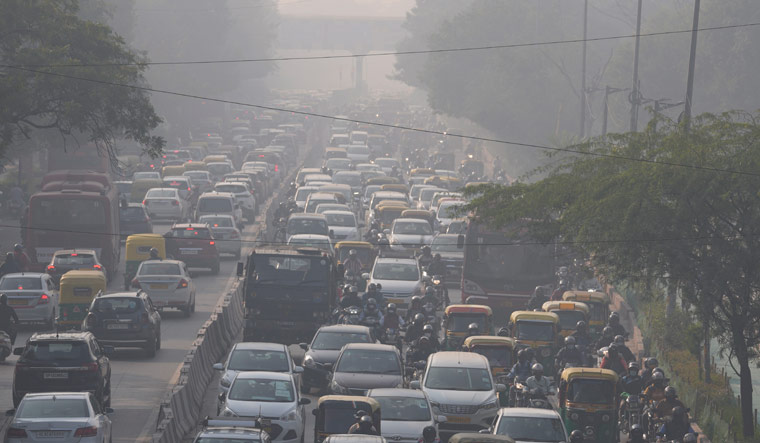Geospatial artificial intelligence (AI) and machine learning models are set to transform the monitoring of air quality in major Indian cities, including Delhi, Mumbai, Bengaluru, Chennai, and Kolkata. This groundbreaking development was announced by a senior scientist during the India Clean Air Summit (ICAS) 2023, a prestigious event organized by the Center for Air Pollution Studies (CAPS) at the Center for Study of Science, Technology, and Policy (CSTEP) in Bengaluru.
The use of mathematical modeling tools has been rapidly gaining prominence in India, and the deployment of geospatial AI and machine learning models marks a significant step forward in tackling the urgent issue of air pollution. P G Diwakar, the ISRO chair professor at the National Institute of Advanced Studies, underscored the crucial link between sustainable development goals and air pollution indicators during his address.
"We must link up SDGs and air pollution indicators, as highlighted by the United Nations 2030 Agenda, particularly in the context of SDGs 3.9 (which relates to mortality from environmental pollution as per the 2030 SDG Agenda) and 11.6 (which sustainable cities and communities)," Diwakar said.
"Using geospatial technology, we need to establish well-distributed ground observation points to measure in-situ pollution parameters, integrating them with space data for accurate modelling," he added.
Diwakar's remarks shed light on the potential of integrating cutting-edge technology and environmental responsibility to safeguard public health and promote sustainable development. By harnessing the power of geospatial AI and machine learning, Indian cities will be equipped with an advanced system capable of monitoring air quality in real-time, offering invaluable insights to policymakers and citizens alike.
The implementation of these innovative models will enable officials to identify pollution hotspots, pinpoint sources of contamination, and make informed decisions to mitigate the adverse effects of air pollution. With the inclusion of Delhi, Mumbai, Bengaluru, Chennai, and Kolkata in this initiative, some of India's most heavily polluted cities will benefit from the latest advancements in technology.
The move towards geospatial AI and machine learning-based air quality monitoring is expected to revolutionise India's approach to addressing air pollution. By leveraging real-time data and predictive analytics, policymakers and city planners can develop targeted interventions and formulate efficient strategies to combat pollution effectively.
As India is grappling with the devastating consequences of air pollution on both public health and the environment, this transformative initiative offers a glimmer of hope for cleaner, healthier cities. The integration of geospatial AI and machine learning models will undoubtedly play a pivotal role in ushering in a new era of sustainable development and improved air quality for India's urban centers.
The senior scientist explained that geospatial outlook and space-ground observations play a crucial role in accurately estimating pollution levels. This method relies on utilising Aerosol Optical Depth (AOD) data obtained from satellite sources such as INSAT-3D/3DR and MODIs, in conjunction with weather data.
"We need to bring in the weather data into the modelling framework such as wind speed, wind direction, surface air pressure, temperature, humidity etc, that play a major role as part of the model," the scientist said.
Such data could be well-integrated into numerical models to build forecasting and assessment, he said. "These have been tested for Bengaluru and very good results have been seen," Diwakar added.
During the event, V Faye McNeill, a representative from Columbia University, praised India's efforts in improving air quality, noting significant progress in air pollution monitoring and control measures since 2016. McNeill specifically highlighted initiatives like the National Clean Air Program (NCAP) and the implementation of neighborhood-level monitoring.
Selvi PK, a scientist at the Central Pollution Control Board, emphasised the importance of aligning with the NCAP's goals to reduce PM2.5 and PM10 levels by 30-40 percent by 2026.
(With inputs from PTI)


